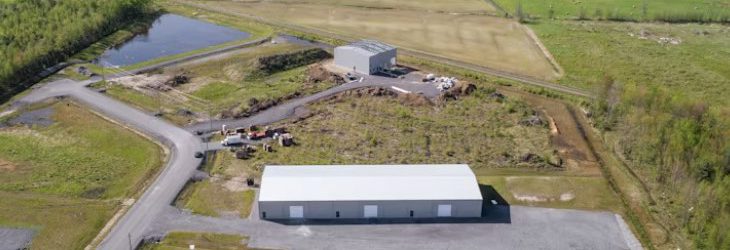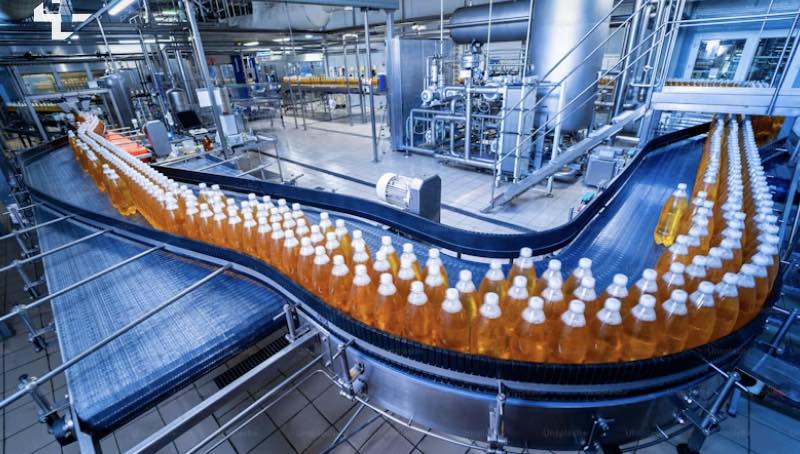What Is Industrial Real Estate?
Industrial real estate is basically the quiet roommate of the global economy: not very glamorous, but it pays most of the bills while everyone else is starting a podcast. Think Amazon warehouses, Tesla Gigafactories, and enormous buildings where forklifts have a better sense of direction than you do.
You are not dealing with dusty old factories anymore. You are looking at high-tech logistics parks, last-mile delivery hubs, and weirdly specific flex spaces that keep supply chains moving while you wonder why your package needs to visit six states to travel 12 miles.
Top 5 Reasons to Invest in Industrial Real Estate
- High demand from e-commerce growth.
- Long-term, stable lease agreements.
- Lower maintenance costs via Triple Net Leases.
- Diversification away from residential market cycles.
- High retention rates for tenant improvements.

Industrial Real Estate Explained
What is industrial real estate? It refers to land and buildings used for industrial activities such as manufacturing, production, storage, research, and distribution. Unlike residential or retail spaces, these properties focus on operational efficiency rather than consumer foot traffic.
If you are new to the basics, here is what a real estate listing is and how it works. Industrial real estate behaves very differently than single-family residential (SFR) properties, specifically regarding zoning and lease structures.
Tilt-up concrete construction allows for rapid development of modern fulfillment centers, a key factor in why this sector grows so fast. Investors should review any encumbrances in real estate (easements, restrictions, etc.) that might impact truck access or expansion before purchasing.
Types of Industrial Properties
Industrial real estate is diverse. Here are the core categories you will encounter in the market.
Manufacturing
Heavy: Large plants producing raw materials or goods (e.g., steel mills).
Light Assembly: Smaller scale product assembly (e.g., electronics).
Warehousing & Distribution
General Warehouse: Storage of goods. Always check warehouse zoning rules to ensure compliance.
Distribution Centers: Logistics hubs for shipping/receiving (e.g., Amazon fulfillment).
Flex Space
A hybrid of office and industrial space. Crucial for last mile delivery hubs near major cities.
Specialized
Cold Storage: Temperature-controlled for food/pharma.
Data Centers: Housing servers and digital infrastructure.
Test Your Knowledge: Industrial Real Estate Quiz
Quiz Complete!
You scored out of 10.
Industrial Real Estate vs. Commercial Real Estate
While industrial is a subset of commercial, they serve distinct purposes. For a broader overview beyond industrial, see our guide to commercial real estate in Kansas City.
| Feature | Industrial Real Estate | Commercial (Retail/Office) |
|---|---|---|
| Primary Use | Production, Storage, Logistics | Consumer Interaction, Office Work |
| Location | Industrial Parks (Near Highways/Ports) | High Traffic Areas (Near Consumers) |
| Lease Type | Long-term, Triple Net (NNN) | Varies (Gross, Modified Gross) |
| Economic Driver | Supply Chain & Manufacturing | Consumer Spending & Jobs |
Property Classifications (Class A, B, C)
Before closing on industrial, walk through a commercial real estate due diligence checklist. Organizations like NAIOP define these standards to help investors judge quality.

| Class | Characteristics | Investor Profile |
|---|---|---|
| Class A | Newest, state-of-the-art, high ceilings, modern loading docks. | Institutional investors seeking low risk. |
| Class B | Older but functional. May need cosmetic updates. Lower rents. | Value-add investors seeking cash flow. |
| Class C | Oldest (20+ years). Often in need of major renovation or redevelopment. | Developers or high-risk/high-reward investors. |
Top Industrial Property Investment Types
For those interested in industrial real estate investing, understanding the asset class is key. Current industrial real estate trends show rising demand for cold storage and data centers. For a market-level view, here’s how to invest in Kansas City real estate.
- Bulk Distribution Warehouses: The giants of the sector. Major players like Prologis and industrial REITs dominate this space.
- Build-to-Suit: Large tenants often prefer build-to-suit industrial developments to match specific needs.
- Flex Industrial: Versatile and lower vacancy. Crucial for logistics real estate networks.
- Self-Storage: Often considered industrial/retail hybrid. Learn how to invest in self-storage for a niche strategy.
Once you’ve found an industrial opportunity, plug the numbers into a cash flow real estate calculator. You can also adapt our deal analyzer spreadsheet to test different lease rates.
Pros and Cons of Industrial Real Estate
Industrial real estate offers unique opportunities, but it is capital intensive. If you are raising capital, consider using a real estate investment pitch deck template or a real estate offering memorandum template to present your deal.

The Pros
- Steady Income: Long-term leases (often 5-10 years). A solid industrial lease agreement is vital.
- Low Maintenance: Most leases are structured as a triple net lease (NNN), meaning tenants pay expenses.
- High Demand: E-commerce growth fuels need for space.
The Cons
- High Entry Cost: Requires significant capital.
- Vacancy Risk: Finding new tenants for specialized spaces takes time.
- Operational Costs: Track income and expenses with a rental property profit and loss statement spreadsheet.
Before diving in, sometimes real estate variance and zoning rules determine whether a site can be used for industrial, so check with the municipality. If you are building a long-term strategy, utilize our rental property business plan template.
Frequently Asked Questions
A common example is a bulk distribution warehouse used by a logistics company to store goods before shipping them to retail locations or directly to consumers.
Industrial use refers to properties that are zoned and physically designed for activities like manufacturing, assembly, production, storage, and distribution of goods.
No. Industrial is a subset of commercial real estate. While “commercial” is the umbrella term that includes office and retail, industrial specifically refers to production and logistics facilities.
Investors typically look at Cap Rate and Cash-on-Cash return. You can use our return on equity real estate calculator or online real estate calculators for analyzing deals to run the numbers.
Ready to Invest in Industrial Real Estate?
Whether it’s a massive manufacturing facility or a smaller flex property, industrial real estate offers steady returns for savvy investors. If you’re evaluating industrial parks or distribution hubs locally, start with commercial and industrial real estate in Kansas City.
If you’re an agent or new investor learning industrial, our real estate mentoring programs go deeper than this article. When looking for industrial property for sale, professional guidance is key.
If you’re exploring industrial or commercial deals locally, learn more about our commercial and industrial real estate services in Kansas City.
Contact Joe Stephenson
Joe Stephenson
Brokerage: Weichert, Realtors® – Welch & Company
My Journey in Real Estate: My real estate career began during my junior year at the University of Kansas. I started by supporting new home communities and learning the ins and outs of new construction. Since then, I’ve expanded my expertise across the entire Kansas City metro, navigating distressed properties, rural land, and urban condos.
Phone: 913-558-1182
Address: 15245 Metcalf Ave, Overland Park, KS 66223



